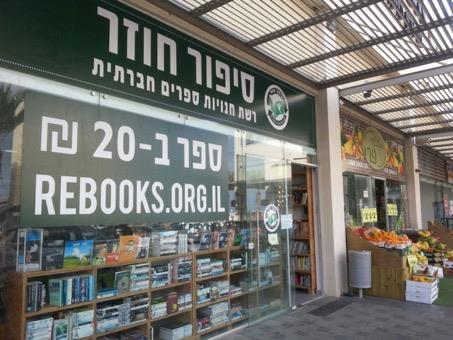The Integrative Unit Model (IUM)

Name of the practice: The Integrative Unit Model (IUM)
Year of initiation: 2014
Organisation: Shekulo Tov Group
Description of the organization: Shekulo Tov was founded in 2005 with the goal to help people with psychiatric disabilities to be part of the community, to pursue their journeys, to reach their functional goals, to be included in society, and to live independently. Since true community integration and social inclusion depend upon having opportunities available outside of the mental health system within mainstream society, Shekulo Tov develops and provides state-of-the-art vocational, supported employment and leisure, and recreational psychiatric services within the community for 3,500 people suffering from psychiatric disabilities.
Country: Lod, Israel
Funding: Shekulo Tov Group is funded 25% through its business operations and 75% as a service provider, mainly for several Israeli Ministries.
Link to UNCRPD: Article 27 - Work and Employment
Description of practice:
The Integrative Unit Model (IUM) aims to help people with severe psycho-social disabilities and other disabilities and vocational barriers realise their potential and achieve their goals to join the open labour market. It promotes the transition from vocational training into the open labor market through mixed sheltered and supported employment practices. Vocational training assists service users to gain experience, learn skills, develop professional tools, and readjust to market demands.
Furthermore, Shekulo Tov developed and implemented MyWay, a digital rehabilitation platform and app, encouraging professional teams and service users to share information about each service user's recovery plan, personal advancements, and goals during the recovery process. MyWay further enables service users to have ownership over their recovery plan and be proactive in its implementation.
Problem targeted:
Vocational rehabilitation providers have struggled to further a substantial movement of service users from sheltered services into the open labor market. The isolated integration of service users continues to occur due to training centres being established far from city centres and doesn't include constant interactions with the community.
Structural and conceptual divisions between sheltered and supported employment result in the professional staff of both methods focusing on their specific systems and legal responsibilities instead of on the rehabilitation itself. Moreover, employers have been forced to hire and protect people with psycho-social disabilities rather than consider their potential impact as economically beneficial.
Solution Offered:
With over 120 business training units located in the heart of communities nationwide, the IUM creates thousands of daily social interactions, removing barriers between people with and without disabilities. The IUM's approach is known as 'Train & Place' - bridging the gap between sheltered and supported employment by creating a unique support system and a 'safety net' for service users, who can return to their unit and receive the support needed even after being placed in the open labor market. The IUM even encourages service users to open their own businesses through training in business units. The training and confidence built through the IUM and supported employment of staff allows employers to understand the actual value of people with disabilities.
Impact and sustainability of practice:
Today, out of 3800 service users, 1140 work with a contract in over 500 open labor market employers IUM works with. Overall, the IUM successfully transitioned thousands of service users into the open labor market over the years. It also led to a reduction in time for service users' preparative vocational training for open labor market placement from 4 years to 14 months. In addition, 60% of service users in the open labor market succeeded in maintaining their job for more than a year, with more than 97% earning minimum wage. Continued adjustments are undertaken to offer the IUM to new populations (in and out of Israel) and create new technological tools and improvements to existing working models.
Contact Information: Ophir Peleg, Director of International Outreach
Additional links:
- Who said that social inclusion can't bring economic impact? - OECD Forum
- Israel: Helping people with mental health issues
- Inclusive labor markets in times of crisis - A conversation with Shekulo Tov (Israel) – German Article
- Rebooks, llibres de segona mà amb funció social
- Universal training and job services for persons with psychosocial disabilities

